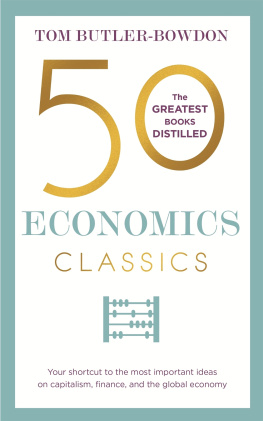John G. Taft - A force for good: how enlightened finance can restore faith in capitalism
Here you can read online John G. Taft - A force for good: how enlightened finance can restore faith in capitalism full text of the book (entire story) in english for free. Download pdf and epub, get meaning, cover and reviews about this ebook. year: 2015, publisher: Palgrave Macmillan, genre: Politics. Description of the work, (preface) as well as reviews are available. Best literature library LitArk.com created for fans of good reading and offers a wide selection of genres:
Romance novel
Science fiction
Adventure
Detective
Science
History
Home and family
Prose
Art
Politics
Computer
Non-fiction
Religion
Business
Children
Humor
Choose a favorite category and find really read worthwhile books. Enjoy immersion in the world of imagination, feel the emotions of the characters or learn something new for yourself, make an fascinating discovery.

- Book:A force for good: how enlightened finance can restore faith in capitalism
- Author:
- Publisher:Palgrave Macmillan
- Genre:
- Year:2015
- Rating:5 / 5
- Favourites:Add to favourites
- Your mark:
- 100
- 1
- 2
- 3
- 4
- 5
A force for good: how enlightened finance can restore faith in capitalism: summary, description and annotation
We offer to read an annotation, description, summary or preface (depends on what the author of the book "A force for good: how enlightened finance can restore faith in capitalism" wrote himself). If you haven't found the necessary information about the book — write in the comments, we will try to find it.
John G. Taft: author's other books
Who wrote A force for good: how enlightened finance can restore faith in capitalism? Find out the surname, the name of the author of the book and a list of all author's works by series.
A force for good: how enlightened finance can restore faith in capitalism — read online for free the complete book (whole text) full work
Below is the text of the book, divided by pages. System saving the place of the last page read, allows you to conveniently read the book "A force for good: how enlightened finance can restore faith in capitalism" online for free, without having to search again every time where you left off. Put a bookmark, and you can go to the page where you finished reading at any time.
Font size:
Interval:
Bookmark:
A Force for Good
How Enlightened Finance Can Restore Faith in Capitalism
edited by
John G. Taft

The author and publisher have provided this e-book to you for your personal use only. You may not make this e-book publicly available in any way. Copyright infringement is against the law. If you believe the copy of this e-book you are reading infringes on the authors copyright, please notify the publisher at: us.macmillanusa.com/piracy .
To Laura
Contents
by John G. Taft, CEO, RBC Wealth ManagementU.S.
by Ron James, President and CEO, Center for Ethical Business Cultures, Kenneth E. Goodpaster, Senior Academic Fellow, Center for Ethical Business Cultures, and David H. Rodbourne, Vice President, Center for Ethical Business Cultures
by Stephen B. Young, Author of Moral Capitalism
by Robert J. Shiller, Economist, Yale University
by Sheila C. Bair, Former Federal Deposit Insurance Corporation Chair, and Ricardo R. Delfin, Former Executive Director, Systemic Risk Council
by Karen Shaw Petrou, Managing Partner, Federal Financial Analytics
by Douglas M. Hodge, CEO and Managing Director, Pacific Investment Management Company
by Charles D. Ellis, Author of Winning the Losers Game
by John C. Bogle, Founder, The Vanguard Group
by Donald B. Trone, Chief Ethos Officer, 3ethos
by Mary Schapiro, Former U.S. Securities and Exchange Commission Chair
by Roger L. Martin, Former Dean, Rotman School of Management, University of Toronto
Part V
by Judd Gregg, Former U.S. Senator and Former CEO, the Securities Industry and Financial Markets Association
by Brian Walsh, Chair and Chief Investment Officer, Saguenay Strathmore Capital
by Barbara G. Novick, Vice Chairman, BlackRock
by Jeremy Diamond, Former Managing Director, Annaly Capital Management
by John Rogers, Former President and CEO, CFA Institute
by Dominic Barton, Global Managing Director, McKinsey & Company, and Mark Wiseman, President and CEO, Canada Pension Plan Investment Board
Part VIII
by David Blood, Cofounder and Senior Partner, Generation Investment Management
by John Fullerton, Founder and President, Capital Institute
by Vikram Mansharamani, Lecturer, Yale University, Program on Ethics, Politics and Economics
Preface
John G. Taft
CEO, RBC Wealth ManagementU.S.
In the seven years since the world was plunged into chaos by the financial crisis of 200809, I have traveled extensively across the country: speaking at conferences and business schools; appearing on financial shows, from Bloomberg Surveillance to CNBCs Squawk Box ; writing Stewardship: Lessons Learned from the Lost Culture of Wall Street (Wiley, 2012); and posting blogs like 10 New Years Resolutions for Wall Street. I was driven by my deep belief that there is no more important undertaking than to help build the foundation for what I call enlightened finance: finance in the service of society. Finance based on the core premise of stewardship. Finance as a means to greater ends, namely, making the world a better place.
The central idea of this book is that the financial services system has an opportunity to move past the damage of the past several years and become, in fact, an agent of positive social change. To stand for goodness rather than badness (as Judge Smails, of the cult movie classic Caddyshack, would say). To forge what the Economist s Matthew Bishop terms the road from ruin, and to walk the path back to respectability, crawl out from underneath an increasingly suffocating pile of recent regulation and rule making. To contribute to constructive change at a time when most political leaders, and the system they serve, have all but abdicated their responsibilities.
So what needs to happen in order for finance to become a force for good in the world? A force for enhancing our collective standard of living? The answer is threefold: the financial industry must stop contributing to the extreme volatility in markets that periodically destabilizes the world economy. Next, financial market participants must foster and engage in a conversation about what outcomes society wants and needs from its economic system. Finally, we must work to realign the financial system so it supports the economic model that best achieves those outcomes.
In financial capitalism, which is the dominant socioeconomic construct in the world today, there exists a metaphorical contract between society and business. Call it the corporate social compact. This compact isnt written down. It isnt explicit or static. Instead, it evolves and morphs over time. The corporate social compact represents the publics expectations of the role an individual business, industry or entire economic sector will play in society. In return for living up to those expectations, businesses are granted a license to operatemetaphorically and literallyto pay their employees and profit their owners.
What we witnessed in the financial sector over the past decade was, in essence, a wholesale breach of contract. We saw the financial services industry failing to live up to its end of the bargain. (One more scandal and were going to end up like the tobacco industry, a colleague accurately lamented to me.) Predictably, societys reaction has been punitive. This punishment consists not only of investigations, fines and settlements equaling tens of billions of dollars, but also the most extensive new set of regulations ever promulgated for a single industry.
In the absence of what Warren Buffett calls an inner scorecard, society has imposed an outer scorecard on the financial system. No one yet knows what the cumulative effect of this punitive activity will be on financial firms, markets or the economy as a whole. But one thing is clear: Unless and until we can quantify that effect, the chances of achieving an optimal balance between economic growth and stability are remote.
What is also clear is that if the financial services industry wants to stand for goodnessif it wants to do a better job of delivering what society expects and needsthen asset management firms, consumer banks, investment banks, wealth management firms, mutual funds, insurance companies, hedge funds and private equity investors are going to have to do a much better job listening to, interpreting and understanding the needs of societyand then responsibly living up to the terms of the compact.
This is not a trivial undertaking, especially since not everything society wants is healthyin the short or the long term. Also what society wants is changing, and will continue to change over time.
A Force for Good owes a considerable debt to the CFA Institutes Future of Finance Initiative, a multiyear project that is working through the question of how financial market participants can act for the ultimate benefit of society.of directors of the Securities Industry and Financial Markets Association (SIFMA), I have been privileged to meet and interview many people who are passionate about forging a constructive future for finance. Several of them contributed chapters to this book. Some, like me, are or have been executives operating financial services firms. Others served as regulators. Still others come from academia. There is a Nobel laureate and even a politician (albeit a retired one).
This book is, in effect, an effort to pick their brains at a time when many of the quasi-axiomatic assumptions underlying modern capitalism are being called into question, which is prompting a parallel and far-reaching examination of how the financial system that supports capitalism will have to evolve.
What are some of those assumptions?
Next pageFont size:
Interval:
Bookmark:
Similar books «A force for good: how enlightened finance can restore faith in capitalism»
Look at similar books to A force for good: how enlightened finance can restore faith in capitalism. We have selected literature similar in name and meaning in the hope of providing readers with more options to find new, interesting, not yet read works.
Discussion, reviews of the book A force for good: how enlightened finance can restore faith in capitalism and just readers' own opinions. Leave your comments, write what you think about the work, its meaning or the main characters. Specify what exactly you liked and what you didn't like, and why you think so.







